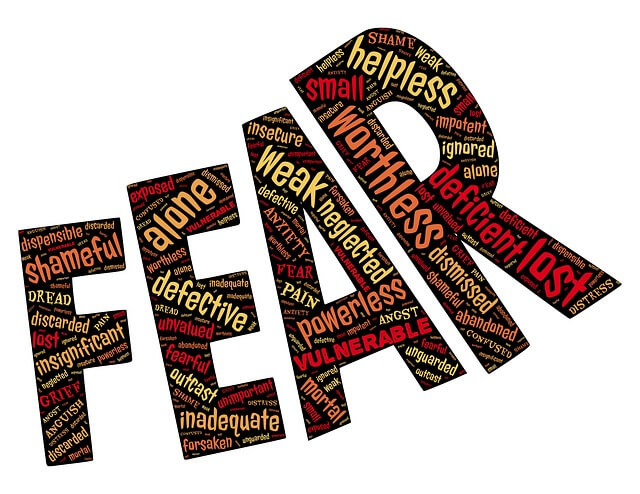The agent in this photo looking cool, calm, and collected on her first day is a misleading representation. This just isn't possible. Because if it's your first day in the call center floor, the only photo that could represent it with justice is this one: Weak, helpless, inadequate, deficient, and lost.
No amount of training will prepare you for what's coming on your first day of taking calls. That said, I won't say that you're gonna deal with it like a boss 'cause that ain't gonna happen. You can, however, still survive your first day in the call center floor.
What I mean by "survive" is, you'll still feel lost in the deluge of information you're supposed to memorize, but you'll find your way eventually; you'll still feel confused but in the end, will be able to provide the right answer to your customers. That's pretty much what a complete call center beginner can do best during his/her first day in the call center floor.
1. Language barrier
If you're a native English speaker or if your English is impeccable, skip this part. But if English is your second (or third) language and you don't speak English everyday, chances are, you're gonna have a bit of difficulty understanding your customers' statements.
I'm not saying you won't understand them at all, but you're pretty much going to lag like an old computer. You're going to consume every neuron of your brain to decipher what your customers are saying. There are lines you won't get at all (jokes and idioms for example) but you'll eventually manage to understand them in the end after a series of awkward, "I'm sorry?" and "Pardon me?".
What you can do about it
Weeks before your big day, consume English as if it's your breakfast, lunch, and dinner. Listen to audio and video materials with native English speakers in it.
Not just any English, mind you. If your main customers are Australians, whose English sounds considerably different than the American's, do listen to Australian speakers. The goal isn't to copy the accent. (As long as your accent is neutral, you're good.) The goal is to train your ears and brain to catch the subtle enunciation and accent in that specific English you're supposed to learn. It's also important to learn the common expressions your customers regularly use. This should smooth out the transition much better and you can focus on other pressing matters, which brings me to your next challenge.
2. Knowing when to speed up and when to slow down
When helping a 65-year-old grandma whose knowledge about internet is as vast as a pea, I bet you instinctively slow down a little so grandma could keep up with you.
But when you're talking to a customer who's almost late for work, doesn't bother with greetings, and just wants to know how to get the bloody refund, that's your cue to answer the question as succinctly and straightforward as possible.
You aren't going to talk to the same type of customer all the time. Therefore, an ability to change gears to keep up with the each customer's pace is a very valuable skill that every call center agent, new or old, should master. It's called mirroring.
You don't wanna talk too much when the customer is in a rush and just wants to get the answer without chitchat. And you don't wanna brush off grandma's comment about the weather just because it's off topic.
Unfortunately, you aren't going to develop this skill overnight, especially not on your first day taking calls. But now that you know something about it, perhaps you can try.
In every call you get, observe each of your customer's talking pace. Does she return your greetings or does she blurt her concern straight away? Does she cut you off mid-sentence to ask her next question? That's your cue to talk a little bit faster. What's her tone like? Does she sound like she's pressed for time and just wants to get off the phone ASAP as soon as she gets the answer? Speed up a little bit to keep up. Your customers will appreciate you for it.
3. "What's the weather there like today?"
Ugh, who doesn't dread that question?
Living in the tropical country, all we ever care about is whether it's raining or not raining to know whether we should bring the umbrella. No inches of snow, negative degree temperatures, and absolutely no four effin' seasons!
Unfortunately, almost all accounts require their agents to pretend that they share the same citizenship as their calling customers. So whether you like it or not, keep a tab open in your computer to keep track of the weather and temperature in your make-believe location. Part of the job.
4. The time zone
If you're catering to a huge country (like America), which have 4 time zones, you gotta know when to say good morning or good afternoon. At this point, you should already know how to mentally compute time zones, as discussed during the first and second day of your training. If you forgot, do yourself a favor and ask Google.
5. "Where are you located?"
Consider yourself lucky if your account allows you to disclose your real location (like Ebay). Because if not, then you have a serious preparation to make.
Customers ask this question for several reasons:
- They're plainly curious about the company's location.
- They hear it from your accent and simply want to make a friendly conversation.
- They could barely understand your accent, and want you to transfer her to a native English speaker.
- You're speaking a neutral or excellent English but s/he's simply racist.
Whatever the reason is, it's a total pain in the ass to lie about your location, which, unfortunately, most contact centers require their agents to do.
What to do
Lie as you're required to, but research about the basic info about your "make-believe location". For example, if the customer asks about your location's time and weather, you must have a ready answer. If your accent is a little bit on the heavy side and won't likely convince a customer that you share the same country as his, cook up a story about how you aren't really a Canadian or American by birth but your family migrated a year ago. You know, STORIES.
I know what you're thinking: what a challenging job. Might as well become a spy and sport a new identity.
But if you are to survive working in a call center, especially on your first day, expect that you're gonna encounter this question and it sure is better to lie hard and good, than lie lamely and stutter.
Conclusion:
Call center training itself isn't easy, and your first day as a certified call center agent isn't going to get any easier. Fortunately, once you get the hang of the information overload, what to say, and what not to say, you definitely are going to survive it. Not unscathed though, but definitely wiser.
You might also like:
How to Pass Your Call Center Nesting Test and Land Your Official Job Offer
9 Health Tips for Call Center Agents Who Want to Live Long Lives




